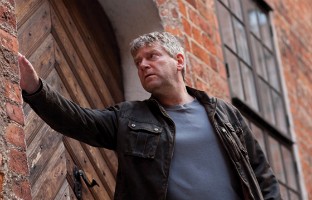Never off the clock

Christians from G. K. Chesterton to P. D. James have noted the implicit theology of the murder mystery. When humanity is desecrated through the wrongful taking of life, blood always cries out from the ground. And every murder mystery requires a murderer—a violator of divine and human law—who must be caught. The fact that murder mysteries are not much like murder cases in our justice systems is beside the point. The bigger point remains: we live in a moral universe where justice will prevail—whether now or in the Judgment.
This fundamentally moral and theological premise is the unstated center of Wallander, an excellent murder mystery series from the BBC that is set in Sweden and based on a popular series of novels by Henning Mankell. Three seasons are available on Netflix, while the fourth and final season is in production. The great Kenneth Branagh is both producer and lead actor. He plays inspector Kurt Wallander, who solves one serial killing case after another. Wallander is a cop so devoted to his calling that his family life suffers. He sleeps in fits and starts in a chair with a bottle of wine by his side. He notices every detail about a crime scene but can’t be bothered to notice when a loved one is suffering. He is always on the edge of collapse. The danger is not that he’ll torture or kill a suspect as in American cop shows; it’s that his own life is always within an inch of flying apart. Relentless pursuit of justice proves to be a demanding idol.
Read our latest issue or browse back issues.
Wallander knows he should leave work at the office. A series of broken relationships shows this to be true. But he cannot. When he is on a murder case, he tenaciously pursues someone out there who could kill again. Colleagues call with new information, and Wallander speeds off to a new crime scene or new suspect. There is no questioning this. Even those left behind in his dust understand why it must be so.
He tries to intertwine his personal life with his work. Wallander attempts to deal with his own aging father, for example, and at the same time is trying to solve the murders of several older men. In another episode, he’s investigating incidents involving young women and at the same time struggling in his relationship with his own daughter. This intertwining theme becomes more explicit as the series evolves. In one episode Wallander moves to a dream home with a girlfriend and her daughter. But soon the family dog uncovers a skeleton in the backyard—his work has literally followed him home.
As a pastor I watch this show because murder is serious, and so are the matters of eternal life and death in which pastors deal. Wallander is half a man, a shriveled hulk as a father, a son, a husband and lover. A teenaged suspect throws this accusation at him during an interrogation: “You feel guilty that you’re a crap dad, then, don’t you?” Wallander is silent for a moment, then replies blankly: “Yeah. I’m a crap dad.”
For me, the most interesting aspect of Wallander is that it is impossible for Wallander to separate his work and his personal life. I’m struck that this may also be the hardest thing that pastors do. Someone is always calling us with a new need or demand. Like Wallander, we are never off the clock. Wallander at least offers comfort in identifying just how difficult it is. “I used to be a Christian,” one character says in one of the only mentions of faith in the series. “Then I became a forensic pathologist.” Some pastors might say something similar.





